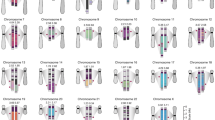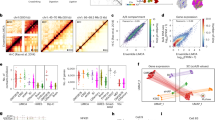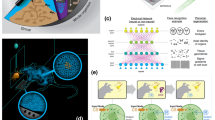Abstract
SALISBURY1 has argued that there is an apparent contradiction between two fundamental concepts of biology—the belief that the gene is a unique sequence of nucleotides whose function it is to determine the sequence of amino-acids in a protein, and the theory of evolution by natural selection. In brief, he calculated that the number of possible amino-acid sequences is greater by many orders of magnitude than the number of proteins which could have existed on Earth since the origin of life, and hence that functionally effective proteins have a vanishingly small chance of arising by mutation. Natural selection is therefore ineffective because it lacks the essential raw material—favourable mutations.
This is a preview of subscription content, access via your institution
Access options
Subscribe to this journal
Receive 51 print issues and online access
$199.00 per year
only $3.90 per issue
Buy this article
- Purchase on Springer Link
- Instant access to full article PDF
Prices may be subject to local taxes which are calculated during checkout
Similar content being viewed by others
References
Salisbury, F. B., Nature, 224, 342 (1969).
Maynard Smith, J., in The Scientist Speculates (edit. by Good, I. J.) (Heinemann, London, 1961).
King, J. L., and Jukes, T. H., Science, 164, 788 (1969).
Author information
Authors and Affiliations
Rights and permissions
About this article
Cite this article
MAYNARD SMITH, J. Natural Selection and the Concept of a Protein Space. Nature 225, 563–564 (1970). https://doi.org/10.1038/225563a0
Received:
Issue Date:
DOI: https://doi.org/10.1038/225563a0
This article is cited by
-
Robustness and innovation in synthetic genotype networks
Nature Communications (2023)
-
Protein folding rate evolution upon mutations
Biophysical Reviews (2023)
-
Secretory quality control constrains functional selection-associated protein structure innovation
Communications Biology (2022)
-
Combining chemistry and protein engineering for new-to-nature biocatalysis
Nature Synthesis (2022)
-
Experimental exploration of a ribozyme neutral network using evolutionary algorithm and deep learning
Nature Communications (2022)
Comments
By submitting a comment you agree to abide by our Terms and Community Guidelines. If you find something abusive or that does not comply with our terms or guidelines please flag it as inappropriate.



